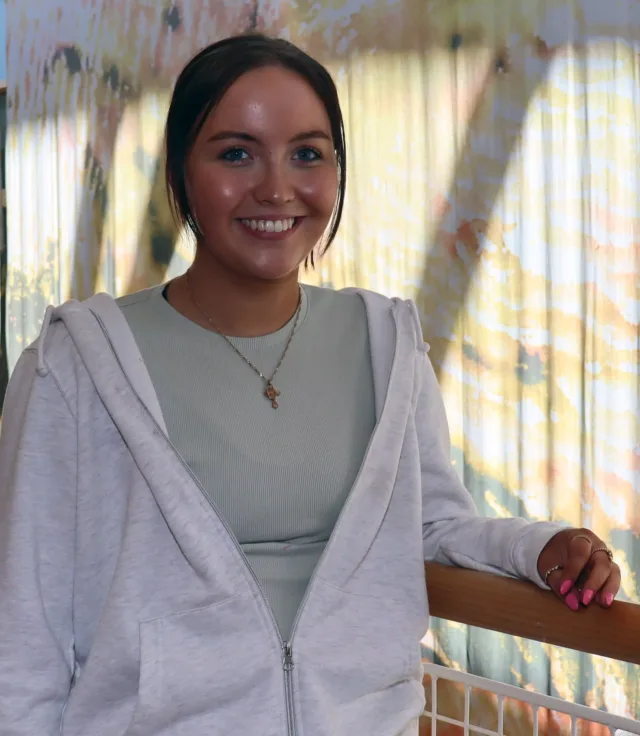Courses
Communications with English
Bachelor of Arts (Honours)
Course Details
| CAO Code | AU312 |
|---|---|
| Level | 8 |
| Duration | 3 Years |
| CAO Points | 316 (2025) |
| Method of Delivery | On-campus |
| Campus Locations | Donegal – Letterkenny |
| Mode of Delivery | Full Time |
Applicants outside the EU
If you are resident outside the EU, then you will need to apply using this button
Course Overview
This new degree combines the study of Communications with English to address current demands for expertise across a wide variety of employment opportunities. The programme emphasises the importance of English for effective communication, tracing its use through a variety of genres, including literary texts, newspaper, advertising and media discourse and the discourse of law. Students are offered the chance to learn a range of skills from a wide variety of academic disciplines and perspectives, including modules on communication skills, criminal law, critical thinking, Irish literature, creative writing, TEFL, media and communications law, sociology and content design. This disciplinary mix helps students acquire the diverse range of skills needed to thrive in today’s employment landscape, including skills in critical thinking and evaluation, research, information gathering and dissemination, content creation, expertise in oral and written communication and problem-solving. This degree programme will prepare graduates for a variety of career opportunities and provides them with the required undergraduate subjects and skills to pursue a Masters to teach English at second level and as a foreign language as well as to contribute to strategic communications within the public and private sector, all types of media and the creative industries.
Progression
Follow up programmes elsewhere include:
Completion of this programme does not guarantee admission to a Professional Master of Education (PME) programme.
Master’s degrees in institutes and universities at home and abroad.
Download a prospectus
Entry Requirements
| Leaving Certificate Entry Requirement | 6 subjects at O6/H7 which must include: – 2 subjects at H5 – English at O6/H7 – Maths not required |
| QQI/FET Major Award Required | Any |
| Additional QQI/FET/ Requirements | Three Distinctions |
| GCE/ A-level/ GCSE Entry Requirement | 6 distinct recognised GCSE/A-level subjects which must include: 2 A-levels at Grade C and 4 other subjects at GCSE-level Grade C which must include: – English |
Advanced Entry
Transfers into years two, three or four are welcome from those who have completed learning in a cognate area in another Higher-Level Institute (HEI).
Applications will open in early 2026.
Fees
Total Fees EU: €3,000
This annual student contribution charge is subject to change by Government. Additional tuition fees may apply. Click on the link below for more information on fees, grants and scholarships.
Total Fees Non-EU: €12,000
Fees shown are per annum.
Further information on feesProfessional Accreditation
Graduates of this programme may wish to qualify as English teachers and the programme has been designed to meet the requirements of the Teaching Council to teach English which as of the 1st of January 2023 requires the study of Drama, Poetry and Fiction and may include Composition and Writing Skills, Film, Theatre and Media Studies. curricular-subject-requirements.pdf
Careers
Career Pathways
The main employers are:
Advocacy
Arts Management
Community Organisations
Creative Leadership
Cultural Tourism
Educational institutions
Event Promotion
Public Relations
Publishing
Speech Writing
Training & Facilitation
Graduate Careers
Graduate careers typically include:
Brand Strategist
Copywriter
Digital strategist
English teacher
Journalist/Reporter
Managing editor
Marketing Coordinator
News anchor
Public relations specialist
Social media manager
Teaching English as a foreign language
Further Information
Contact Information
Department of Law, Public Service and Education
Bronagh Heverin
Head of Department
T: +353(0)74 918204
E: bronagh.heverin@atu.ie

Law, Public Service & Education


